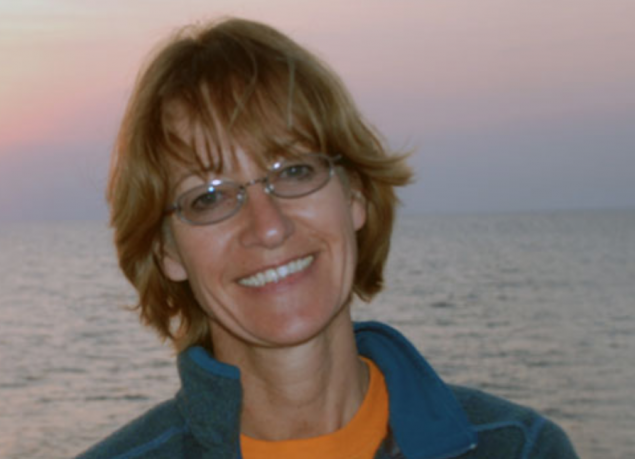You can hear more from Dr. Brooke and her journey to become a coral biologist here.

About the Job
What is your title?
Director of Coral Conservation (Marine Conservation Institute) and Research Associate (Oregon Institue of Marine Biology)
Where do you work?
I have two affiliations, one at the Marine Conservation Institute (MCI), and I also have an adjunct Research Associate position at the Oregon Institute of Marine Biology (OIMB).
Do you travel often? To where?
Yes, too often really, about once a month. Mostly I go to meetings, but also scientific conferences and symposia to present my research. I go to sea on average once a year, but some years have multiple cruises.
What are the educational requirements for your job?
For my research position, I need to have a PhD and the Marine Conservation Institute prefers their science positions to have a PhD, but a Maste’rs degree plus relevant experience is also acceptable.
What is the salary range for someone with your type of job?
Between $65,000-85,000 per year.
How many hours do you work per week?
I’m not sure, I don’t keep count; however, in addition to my regular hours, I work most evenings and usually some of each weekend. When I am at sea, I start at around 7: 30 am and don’t stop until 10:30 pm or later.
Job Duties
Tell us about your research and the types of things you do.
My work at the Marine Conservation Institute involves providing science support for our policy department, to ensure our proposed policy amendments are scientifically defensible. I also work with Fishery Management Councils to attain protection for ecologically important ecosystems such as deep-sea coral reefs. In addition to my coral conservation role, I provide guidance to our cruise line collaborators to ensure they serve only sustainable seafood.
My work at the Oregon Institute of Marine Biology involves research into various aspects of deep-sea biology, with an emphasis on deep corals. I spend several weeks per year at sea gathering samples and data, then come back to OIMB to process them.
My work focuses on life histories and physiology of deep corals and characterizing deep reef ecosystems. My most recent project is located in the Atlantic deep-water canyons and includes three research cruises over a period of four years.
What is the most fascinating thing you have ever seen or done?
Diving in the DSV Alvin (four times) to study hydrothermal vents off the East Pacific Rise was probably the highlight of my field experience, but I have also been fortunate to have used submersibles and remotely operated vehicles to study deep slope communities in the Bahamas; cold seeps in the Gulf of Mexico; and deep coral ecosystems in Alaska, Norway, the southeastern US and Gulf of Mexico.
Another experience high on my list was spending eight days in the Aquarius underwater habitat off the coast of Key Largo, Florida. It was eerie and lovely living in a blue world, with muted light and coral reefs outside the windows.
What are the personal rewards of your work?
I like being at sea and exploring new ecosystems; my absolute favorite thing to do is dive in submersibles and be down on the seafloor seeing the incredible life in the deep ocean. The animals that live in these environments are remarkable and beautiful and often have unusual traits that allow them to survive in a hostile world. I usually bring animals back alive to the laboratory to conduct experiments, which allows us to understand their biology and ecology.
Apart from the exploration and science, I find it rewarding to help protect ecosystems such as deep coral reefs that are vulnerable to human activities. My position at MCI allows me to do this.
How does your work benefit the public?
My scientific publications hopefully contribute to our understanding of how deep-sea animals live and function. Science also informs management decisions, although not as much as it could at times. My work on the southeastern U.S. deep coral reefs contributed directly to the establishment of a large coral protected area (~ 23,000 square miles) that will prevent the reefs from being damaged by fisheries and energy development. Good management preserves common resources for the benefit of the general public, rather than allowing them to be overexploited by a few.
What else could someone with your background do?
There are lots of career possibilities for someone with a strong background in biological sciences. They could teach at a school or university; work for a State or Federal Government agency as a scientist, research coordinator, or in science outreach; work for an environmental consultancy organization; or a non-profit; or even pursue scientific journalism.

